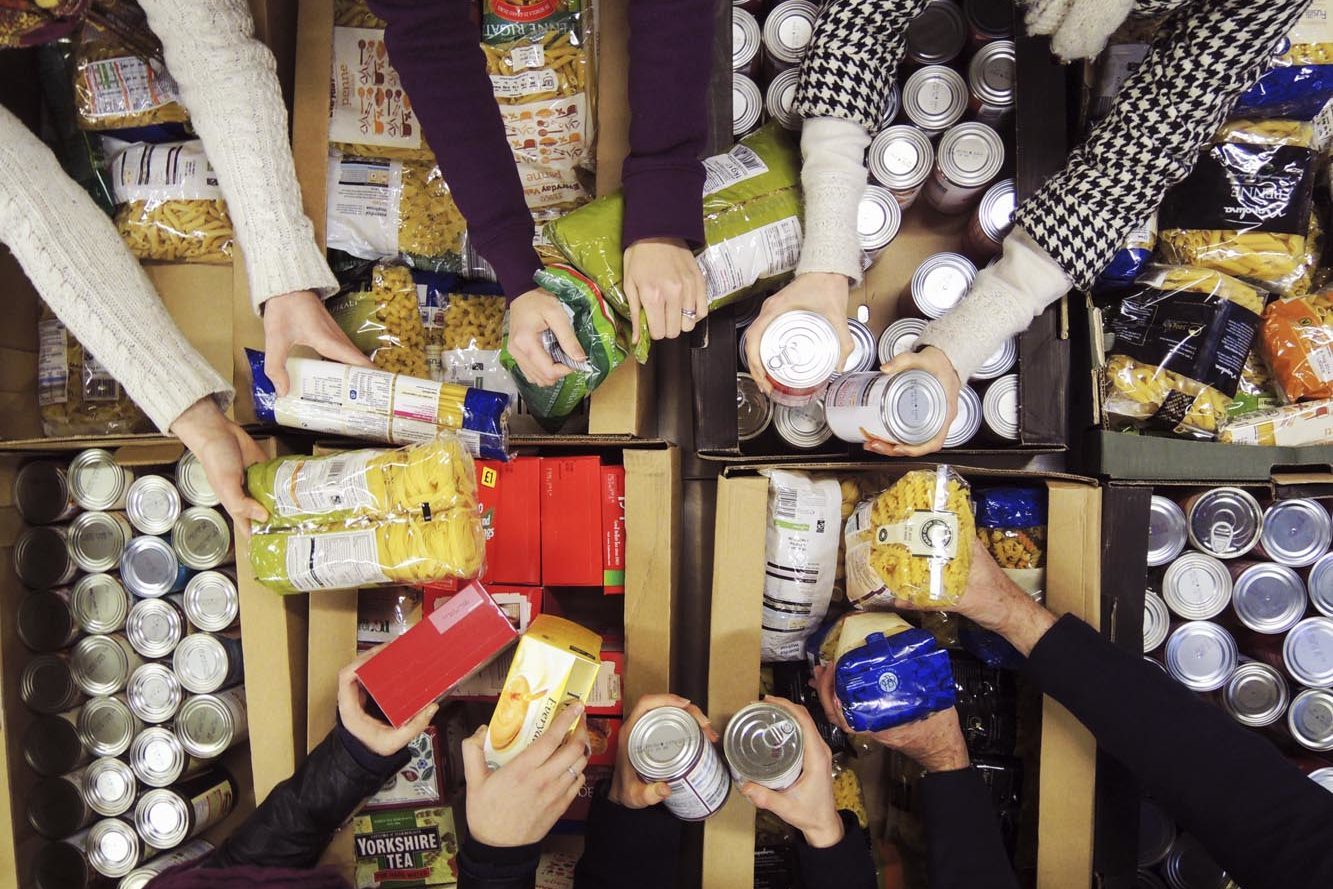The acute and pressing need for support for our Foodbanks

Photo from the Trussell Trust
During this time of crisis when each day carries a weight of grim expectation and time has taken on a mind of its own, there are many across Cornwall who are worrying if they will have enough food to last until the end of the week, or even the end of the day. These aren’t people who have the luxury of panic-buying, or who wonder if they can make a meal out of the bizarre ingredients found at the back of the cupboard, these are people in our communities, villages, hamlets and towns who are properly hungry and properly scared.
Foodbanks were under pressure long before Covid-19 released itself into the world. But the consequence of the necessary response to keep people safe has resulted in a collision of events that are hitting hardest our most vulnerable. Many families have lost their incomes, and children are home all the time and are no longer getting free school meals. Volunteers at Foodbanks have had to withdraw as the majority are categorised as high-risk from the virus and donations are massively down because of supermarket restrictions to prevent stockpiling.
Foodbanks doing things differently
In Cornwall we have always had a thriving network of Foodbanks, both independently run and as part of the Trussell Trust. Yes, there has been a consistently high level of need in our county, but so too has there been a high level of generosity. Volunteers have given richly of their time and communities have always popped a little extra in their trolleys to donate to the Foodbanks.
But today, during these unprecedented times, all of our foodbanks across Cornwall need food, people and money. As many of them are having to do things differently, like delivering food parcels to people’s homes, they need cash to fund the vehicles and people to drive them. They also need cash to buy emergency provisions. They can no longer bulk-buy because of the restrictions and now we are in lock-down, far less people are shopping and therefore donating. In this past month alone, March 2020, the amount of people who visited Truro Foodbank doubled from this time last year. The number of children included in the same month went up from 73 to 229. This is just one month.
Foodbanks need food, cash and people – now
Most of the foodbanks need volunteers, not just to cope with the new ways of working, but to replace their core volunteers who are currently self-isolating. Help is needed sorting donations and packing boxes as well as making deliveries. If you are not in a high-risk category or have young people in your life wondering what they can do to help, all of the foodbanks have strict protocols to safe-guard volunteers to minimise the risks while helping from the frontline.
How everyone can help
Please, when you have to make an essential trip to the supermarket, think about your local foodbank. And if you’re able to, please think about making cash donations to these vital services to support the most vulnerable in our communities. For many, this is only the beginning of a very difficult time ahead, but surely we can all do a little bit, regularly, to make sure that no family goes hungry.
Generally, every foodbank is short of supplies of all tinned, dried or long-life food items – breakfast cereal, soup, pasta, rice, pasta sauce, tinned beans, tinned meat, tinned vegetables, tinned fruit, tea or coffee, sugar, biscuits and snacks.
To find out what each foodbank specifically needs, when they are open and how to access them, go to Transformation Cornwall
